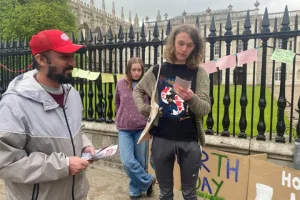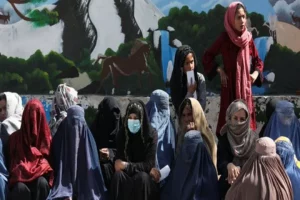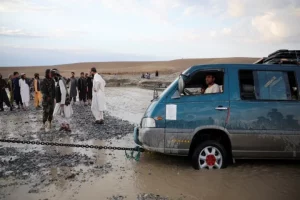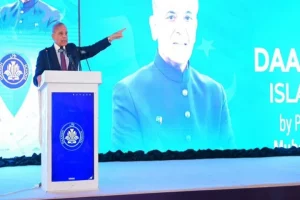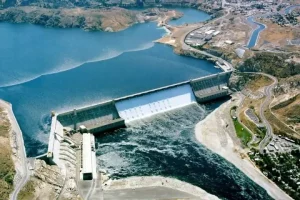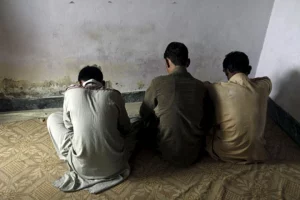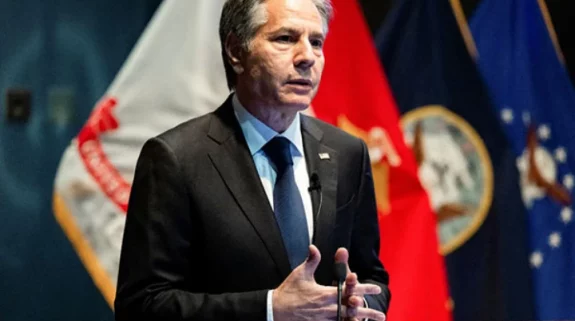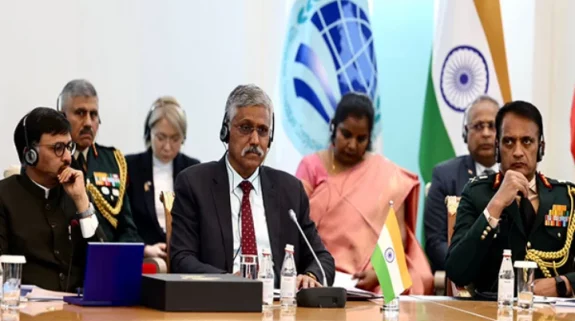Under pressure from Taliban and the international community, the Pakistani Prime Minister Imran Khan has agreed to work on modalities for transporting Indian wheat to Afghanistan before the harsh winter sets in.
On Thursday, during a meeting with PM khan, the foreign minister of Taliban regime, Amir Khan Muttaqi raised the issue and told him that since “Pakistan claims that it is committed to the welfare of Afghans, he should allow India’s proposals of help,” said a Pakistani source adding that Khan assured Muttaqi that he would ask his officials to work on it.
Video : Pak PM Imran Khan meeting with the Taliban FM Amir Khan Muttaqi
1/2. The delegation from Afghanistan, led by Interim Foreign Minister Amir Khan Muttaqi, called on Prime Minister Imran Khan today. Bilateral cooperation including ease of trade and travel and humanitarian assistance were discussed. pic.twitter.com/G6Al8TuRwu
— Mohammad Sadiq (@AmbassadorSadiq) November 12, 2021
Later PM Khan tweeted that he would favourably consider the request by Afghan brothers for transportation of wheat offered by India through Pakistan on exceptional basis for humanitarian purposes and as per modalities to be worked out.”
The Prime Minister reaffirmed Pakistan’s support to Afghanistan and the Afghan people in overcoming the dire challenges being faced by their country.
— Prime Minister's Office, Pakistan (@PakPMO) November 12, 2021
Khan added that Pakistan will also provide essential food items including wheat and rice, emergency medical supplies, and shelter items to Afghanistan. But so far cash strapped Pakistan has not been able to provide much help.
A day earlier, ministry of external affairs spokesperson Arindam Bagchi had said that India had been looking at various possibilities of sending aid to Afghanistan, “but there have been difficulties due to lack of unimpeded access”. India had been looking to send at least 50,000 tonnes of wheat to Afghanistan.
India had reached out to Pakistan last month by sending a note verbale for allowing movement of trucks carrying 50,000 metric tonnes of wheat to Afghanistan via land route Wagah-Attari border, but Islamabad has not been bothered to reply.
According to sources, Pakistan has to decide about the modalities and logistics for transportation of wheat, Roughly to transport 50000 metric tonnes to Af-Pak border, it would require 5000 trucks. Will Pakistan allow Indian trucks to carry grains up to the border is the big question. The other option is that the wheat supplies are unloaded and loaded again at Zero Point on the Wagah-Attari Indo-Pak border but that is a massive logistical challenge and it will take more time too.
“Pakistan has to take a call on this. From the Indian side, we are ready to provide all help to the people of Afghanistan – from food grains to winter clothes to medical supplies. Last year India had sent 75,000 MT of wheat to Afghanistan but that was through the long and circuitous Chabahar port route,” said an Indian diplomat adding that the land route is much shorter which can be covered in about 24 hours via GT road, “from Wagah to Kabul the total distance is 800 km.”
It is a complicated exercise given that Pakistan doesn’t allow 2-way trade for India and Afghanistan through that border.It only allows Afghanistan to export goods to India, and that too has been stopped by Pakistan.
The Taliban have been indicating that they are willing to receive aid from India. On Thursday, the group’s spokesperson Zabihullah Mujahid welcomed the outcome of the meeting on Afghanistan of National Security Advisors of key countries.
“We firmly believe that this conference is in the better interest of Afghanistan as the entire region is considerate of the current Afghan situation, and the participating countries also must be thoughtful of improving and safeguarding the security situation in Afghanistan and helping the current government to ensure security in the country on its own,” he said.
The group’s spokesperson Suhail Shaheen said that, “Right now, we want the economic projects in the country to be completed and new projects to start. We also want job opportunities for our people. So we agree with what has been said (at the NSAs conference)”.
On several occasions, India has expressed willingness to send humanitarian aid to the people of Afghanistan though it has cautioned the international community to think through the consequences of granting recognition to the Taliban regime.
More than half the population – about 22.8 million people – face acute food insecurity, while 3.2 million children under five could suffer acute malnutrition. The food crisis in Afghanistan has been compounded by water shortages and a severe drought, the country's second in four years. The World Food Programme warns that "the world's worst humanitarian crisis is unfolding" in Afghanistan, where more than 22 million people could be at risk of starvation.
Also Read: Troika-plus meeting rejects Pakistan’s appeal for de facto recognition of Taliban in Afghanistan
Also Read: Sugar turns costlier than petrol in Pakistan as economy heads for meltdown







